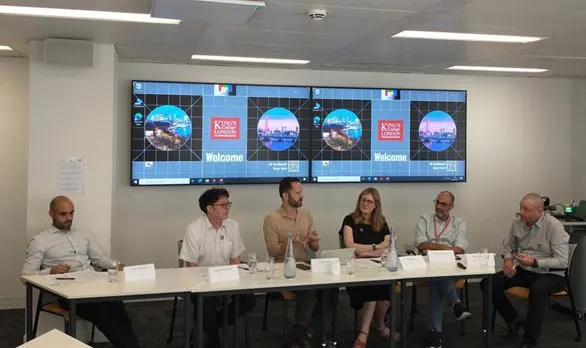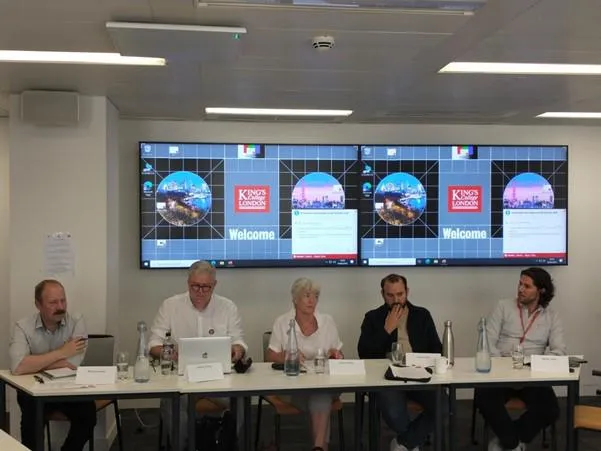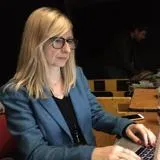25 June 2025
Democratic rebound? King's centre hosts inaugural conference
Democratic resilience, measuring change and scope for innovation were in the spotlight at the inaugural conference of the King’s Centre for British Democracy.

Against the backdrop of a global trend towards democratic backsliding, conference sessions focused on how we should measure change in levels of democracy, the potential and challenges of democratic innovations, and democratic resilience.
The conference - Democratic Rebound? Measurement, Innovation, and Resilience - took place on 16 June at King’s and brought together academics and practitioners.
Proceedings opened with remarks from the three organisers, Sarah Birch, Andrew Blick, and Christel Koop from the Department of Political Economy. They welcomed attendees and introduced the day as the flagship event for the centre during its first year of operation.

The first session, Measuring Democracy, was hosted by journalist and author Ros Taylor. Staffan Lindberg (University of Gothenburg) – the director of the V-Dem Institute – opened the session by reflecting on ‘Measurement of democracy, the V-Dem approach, and outstanding debates’. Following from this, the roundtable saw contributions from Chris Hanretty (Royal Holloway), who discussed further challenges of measuring democracy, and advocated better use of data on measurement error, Stuart Wilks-Heeg (University of Liverpool), who drew lessons from the UK’s Democratic Audit project, Karim Manuel (Economist Intelligence Unit), who provided insight into the creation of (the most recent version of) the EIU’s Democracy Index, and Rubén Ruiz-Rufino (King’s), who considered the trade-offs between multidimensional indices and dichotomous democracy measures.

The second session, Democratic Innovations, was chaired by Rod Dacombe, the head of the Department of Political Economy at King’s. Anne Phillips (LSE) opened the session by giving a talk entitled ‘Innovate or defend? The challenges of democracy at a time of increased authoritarianism”’ Further contributions to the roundtable were made by Simon Caney (University of Warwick), who spoke about tensions between the needs of future generations and political short-termism in democracy, Damien Bol (Sciences Po Paris), who reflected on the discrepancy between those who support the notion of citizen assemblies and those who actually participate in them, and Steven Klein (King’s), who discussed some of the challenges of deliberative methods, but also advocated the use of these methods by traditional political parties.

The final session, Democratic Resilience, was chaired by Rosie Campbell (King’s). Petra Schleiter (Centre for Democratic Resilience, University of Oxford/Wissenschaftskolleg zu Berlin) opened by reflecting on ‘Democratic resilience in an era of rising authoritarianism’, advocating a more collaborative approach to resilience, between sectors and involving business. Further contributions were made by Sofia Vasilopoulou (King’s), who presented new research on partisan variation in tolerance of anti-democratic activities, David Klemperer (Constitution Society), who made the case for compulsory voting, Krzysztof Krakowski (King’s), who explored how democratic citizenship varies across countries and how political violence may backfire, and Anna Gwiazda (King’s), who closed the conference by discussing the largely overlooked role of women in producing democratic resilience.
Although democratic backsliding was ever-present in the background, the different sessions – and the speakers’ engagement with questions from the wider audience – still provided glimmers of hope by showing how change in democracy is best studied, what role democratic innovations can play, and how democratic resilience can be promoted.
The conference was hosted by the King’s Centre of British Democracy, which seeks to deepen understanding of democratic change in the UK and beyond, and to bridge the gap between academic research and real-world policy.









